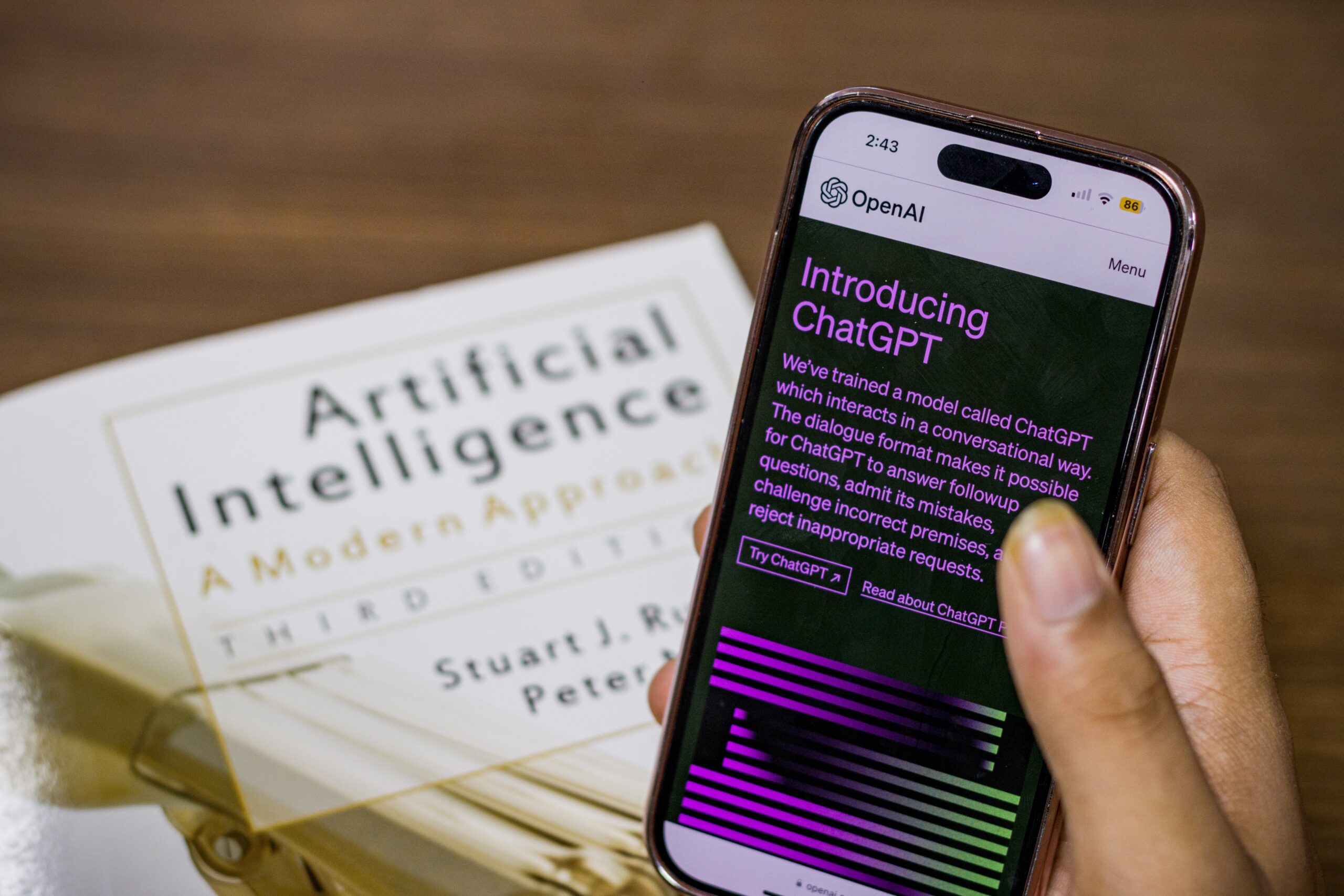Artificial intelligence

Sep
What It Means to Choose or Decide In The Age of AI
jerry9789 0 comments artificial intelligence, Burning Questions
Longstanding Concerns Over AI
From an open letter endorsed by tech leaders like Elon Musk and Steve Wozniak which proposed a six-month pause on AI development to Henry Kissinger co-writing a book on the pitfalls of unchecked, self-learning machines, it may come as no surprise that AI’s mainstream rise comes with its own share of caution and warnings. But these worries didn’t pop up with the sudden popularity of AI apps like ChatGPT; rather, concerns over AI’s influence have existed decades long before, expressed even by one of its early researchers, Joseph Weizenbaum.
ELIZA
In his book Computer Power and Human Reason: From Judgment to Calculation (1976), Weizenbaum recounted how he gradually transitioned from exalting the advancement of computer technology to a cautionary, philosophical outlook on machines imitating human behavior. As encapsulated in a 1996 review of his book by Amy Stout, Weizenbaum created a natural-language processing system he called ELIZA which is capable of conversing in a human-like fashion. When ELIZA began to be considered by psychiatrists for human therapy and his own secretary interacted with it too personally for Weizenbaum’s comfort, it led him to start pondering philosophically on what would be lost when aspects of humanity are compromised for production and efficiency.
Copyright chenspec (Pixabay)
The Importance of Human Intelligence
Weizenbaum posits that human intelligence can’t be simply measured nor can it be restricted by rationality. Human intelligence isn’t just scientific as it is also artistic and creative. He remarked with the following on what a monopoly of scientific approach would stand for, “We can count, but we are rapidly forgetting how to say what is worth counting and why.”
Weizenbaum’s ambivalence towards computer technology is further supported by the distinction he made between deciding and choosing; a computer can make decisions based on its calculation and programming but it can not ultimately choose since that requires judgment which is capable of factoring in emotions, values, and experience. Choice fundamentally is a human quality. Thus, we shouldn’t leave the most important decisions to be made for us by machines but rather, resolve matters from a perspective of choice and human understanding.
AI and Human Intelligence in Market Research
In the field of market research, AI is being utilized to analyze a multitude of data to produce accurate and actionable results or insights. One such example is deep learning models which, as Health IT Analytics explains, filter data through a cascade of multiple layers. Each successive layer improves its result by using or “learning” from the output of the previous one. This means the more data deep learning models process, the more accurate the results they provide thanks to the continuing refinement of their ability to correlate and connect information.
While you can depend on the accuracy of AI-generated results, Cascade Strategies takes it one step further by applying a high level of human thinking. This allows Cascade Strategies to interpret and unravel insights a machine would’ve otherwise missed because it can only decide, not choose.
Take a look at the market research project we performed for HP to help create a new marketing campaign. As part of our efforts, we chose to employ very perceptive researchers to spend time with worldwide HP engineers as well as engineers from other companies.
This resulted in our researchers discovering that HP engineers showed greater qualities of “mentorship” than other engineers. Yes, conducting their own technical work was important but just as significant for them was the opportunity to impart to others, especially younger people, what they were doing and why what they were doing was important. This deeper level of understanding led the way for a different approach to expressing the meaning of the HP brand for people and ultimately resulted in the award-winning and profitable “Mentor” campaign.
If you’re tired of the hype about AI-generated market research results and would like more thoughtful and original solutions for your brand, choose the high level of intuitive, interpretive, and synthesis-building thinking Cascade Strategies brings to the table. Please visit https://cascadestrategies.com/ to learn more about Cascade Strategies and more examples of our better thinking for clients.

Aug
The Future Is Here
“Mitigating the risk of extinction from AI should be a global priority alongside other societal-scale risks such as pandemics and nuclear war.”
With just 22 words, we are ushered into a future once heralded in science fiction movies and literature of the past, a future our collective consciousness anticipated but has now taken us by surprise upon the realization of our unreadiness. It is a future where machines are intelligent enough to replicate a growing number of significant and specialized tasks. A future where machines are intelligent enough to not only threaten to replace the human workforce but humanity itself.
Published by the San Francisco-based Center for AI Safety, this 22-word statement was co-signed by leading tech figures such as Google DeepMind CEO Demis Hassabis and OpenAI CEO Sam Altman. Both have also expressed calls for caution before, joining the ranks of other tech specialists and executives like Elon Musk and Steve Wozniak.
Earlier in the year, Musk, Wozniak, and other tech leaders and experts endorsed an open letter proposing a six-month halt on AI research and development. The suggested pause is presumed to allow for time to determine and implement AI safety standards and protocols.
Max Tegmark, physicist and AI researcher at the Massachusetts Institute of Technology and co-founder of the Future of Life Institute, once held an optimistic view of the possibilities granted by AI but has now recently issued a warning. He remarked that humanity is failing this new technology’s challenge by rushing into the development and release of AI systems that aren’t fully understood or completely regulated.
Henry Kissinger himself co-wrote a book on the topic. In The Age of AI, Kissinger warned us about AI eventually becoming capable of making conclusions and decisions no human is able to consider or understand. This is a notion made more unsettling when taken into the context of everyday life and warfare.
Working With AI
We at Cascade Strategies wholeheartedly agree with this now emerging consensus and additionally, we believe that we’ve been obedient in upholding the responsible and conscientious use of AI. Not only have we long been advocating for the “Appropriate Use” of AI, but we’ve also made it a hallmark of how we find solutions for our client’s needs with market research and brand management.
Just consider the work we’ve done with the Expedia Group. For years, they’ve utilized a segmentation model to engage with their lodging partners by offering advice that could lead to the partner winning a booking over a competitor. AI filters through the thousands of possible recommendations to arrive at a shortlist of the best selections optimized for revenue.
With the continued growth and diversification of their partners, they then needed a more effective approach in engaging and appealing to them, something that focuses more on that associate’s behavior and motivations. We came up with two things for Expedia: a psychographic segmentation formed into subgroups based on patterns of thinking, feeling, and perceiving to explain and predict behavior, and more importantly, a Scenario Analyzer that utilizes the underlying AI model but now delivers recommendations in very action-oriented and compelling messaging tailor-fit for that specific partner.
The best part about the Scenario Analyzer is whether the partner follows any of the advice recommended or does nothing, Expedia still stands to make a profit while maintaining an image of personalized attentiveness to their partner’s needs. And ultimately, it’s the partner who gets to decide, not the AI.

Copyright Tara Winstead
Our Future With AI
This is how we view and approach AI- it’s not the end-all, be-all solution but rather an essential tool in increasing productivity and efficiency in tandem with excellent human thinking, judgment, and creativity. Yes, it is going to be part of our future but in line with the new consensus, we believe that AI shaped by human values and experience is the way to go with this emerging and exciting technology.

Aug
How Can Healthcare Companies Identify Who Needs Remediation Programs?
jerry9789 0 comments artificial intelligence, Burning Questions
What Is Remediation?
The Cambridge Dictionary defines remediation as “the process of improving or correcting a situation.” Remediation programs are commonly employed in teaching and education wherein they address learning gaps by reteaching basic skills with a focus on core areas like reading and math. And as pointed out in an understood.org article, remedial programs are expanding in many places in our post-COVID 19 world.
In healthcare, there’s a wide range of remediation programs, or “remedial care,” diversified based on their end goal which may include smoking cessation, anti-obesity, weight reduction, diet improvement, exercise, heart-healthy living, alcoholism treatment, drug treatment, and more. But how do you identify the people who need remedial care the most?
Who Needs Remediation?
You might say you can tell who needs remedial care by just looking at the physical aspect of the prospective patient, but this is a shortsighted answer to the question. And what about those who need remedial care for a heart-healthy lifestyle? Surely you can’t tell a likely candidate for this remediation program with just one look alone.
It goes deeper than that. What if you, a healthcare representative, could only devote remedial care to a select few individuals given limited resources and time but you want to make sure that the whole remediation program is successful by achieving its intended goals? Just imagine all that time, effort and resources spent only for the patient to relapse back into their old ways not too long after program completion- or even in the middle of the remediation process itself.
Deep Learning and Remediation
This is where deep learning comes in. Also known as hierarchical learning or deep structured learning, Health IT Analytics defines deep learning as a type of machine learning that uses a layered algorithmic architecture to analyze data. In deep learning models, data is filtered through a cascade of multiple layers, with each successive layer using the output from the previous one to inform its results. Deep learning models can become more and more accurate as they process more data, essentially learning from previous results to refine their ability to make correlations and connections.
Deep learning models handle and process huge volumes of complex data through multi-layered analytics to provide fast, accurate, and actionable results or insights. When applied to the scenario we mentioned beforehand, deep learning filters through that multitude of patient data and prioritizes those who need remedial care the most.
You can also align its findings to effectively identify individuals who will not only return monetary value to your healthcare brand, but at the same time are most likely to “engage” or participate in programs offered by your company, such as wellness, diet, fitness or exercise. They can also be the best people to commit to avoiding poor lifestyle choices, such as overeating, smoking, and alcohol, helping guarantee the success of the remediation program.
With a combination of three decades of market research experience and conscientious use of AI, Cascade Strategies has been helping healthcare organizations develop advanced models to handle, filter and identify the likeliest of candidates for their program purposes. Cascade Strategies helps industry professionals not only recognize their ideal customers but also reach out to them with some of the most effective and award-winning marketing campaigns, thanks to our array of services such as Brand Development Research and Segmentation Studies. To see more examples of how we help leading worldwide companies achieve their goals, please visit our website.
Here are some of our suggestions for further reading on deep learning and healthcare:
https://builtin.com/artificial-intelligence/machine-learning-healthcare
https://research.aimultiple.com/deep-learning-in-healthcare/
https://healthitanalytics.com/features/types-of-deep-learning-their-uses-in-healthcare

Aug
The Impact of AI
In The Age of AI, which Henry Kissinger co-wrote with Eric Schmidt and Daniel Huttenlocher, Kissinger tried to warn us that AI would eventually have the capability to come up with conclusions or decisions that no human is able to consider or understand. Put another way, self-learning AI would become capable of making decisions beyond what humans programmed into it and base such conclusions on what it deems the most logical approach, regardless of how negative or devastating the consequences can be.
A common example to illustrate this point is how AI had already transformed games of strategy like chess, where given the chance to learn the game for itself instead of using plays programmed into it by the best human chess masters, it executed moves that have never crossed the human mind. And when playing with other computers that were limited by human-based strategies, the self-learning AI proved dominant.
When applied to the field of warfare, this could possibly mean AI proposing or even executing the most inhumane of plans regardless of human disagreement simply because it considers such a decision the most logical step to take.
The Influence of AI
As part of Kissinger’s warning, it’s been noted just how far-reaching AI’s influence already is in modern life, especially with its usage in innocuous things such as social media algorithms, grammar checkers, and the much-hyped ChatGPT. With the growing dependency on AI, there runs the risk of human thinking being eclipsed by machine-based efficiency and effectiveness. And how it arrives at such efficient and effective decisions becomes questionable because it could become difficult or near impossible to trace what it has learned along the way.
Just imagine someone making a decision influenced by the information fed to them by AI and yet failing to rationalize the thinking behind such a decision. That particular human may not realize it, but at that point they’re living in an AI world, where human decision-making is imitating machine decision-making rather than the reverse. It was this interchangeability Alan Turing was referring to with his famous postulate about artificial intelligence — the so-called “Turing Test” — which holds that you haven’t reached anything that can be fairly called AI until you can’t tell the difference.
Copyright Pavel Danilyuk
Appropriate Use of AI
However, it’s been pointed out that the book doesn’t follow “AI fatalism,” a common belief wherein AI is inevitable and humans are powerless to affect this inevitability. The authors wrote that we are still capable of controlling and shaping AI with our human values, its “appropriate use” as we at Cascade Strategies have been advocating for quite some time. We have the opportunity to limit or restrain what AI learns or align its decision-making with human values.
Kissinger had sounded the warning while others had already made calls to start limiting AI’s capabilities. We are hopeful that in the coming years, with the best modern thinkers and tech experts at the forefront, we progress to more of an AI-assisted world where human agency remains paramount instead of an AI-dominated world where inscrutable decisions are left up to the machines.

Jul
What To Make Of ChatGPT’s User Growth Decline
jerry9789 0 comments artificial intelligence, Burning Questions, Uncategorized
The Beginning Of The End?
More than six months after launching on November 2022, ChatGPT recorded its first decline in user growth and traffic in June 2023. Spiceworks reported that the Washington Post surmised quality issues and summer breaks from schools could have been factors in the decline, aside from multiple companies banning employees from using ChatGPT professionally.
Brad Rudisail, another Spiceworks writer, opined that a subset of curious visitors driven by the hype over ChatGPT could’ve also boosted the numbers of early visits, the dwindling user growth resulting from the said group moving on to the next talk of the town.
The same article also brings up open-source AI gaining ground on OpenAI’s territory as a possible factor, thanks to customizable, faster, and more useful models on top of being more transparent and the decreased likelihood of cognitive biases.
Don’t Buy Into The Hype
But perhaps the best takeaway is Mr. Rudisail’s point that we’re still in the early stages of AI and it’s premature to herald ChatGPT’s downfall with a weak signal like decreased user growth. For all we know, this is what could be considered normal numbers, with earlier figures inflated by the excitement surrounding its launch. Don’t buy into the hype is a position we at Cascade Strategies advocate when it comes to matters of AI.
The advent of AI has taken productivity and efficiency to levels never seen before, so the initial hoopla over it is understandable. However, we believe people are now starting to become a little more settled in their appraisal of AI. They’re starting to see that AI is pretty good at “middle functions” requiring intelligence, whether that be human or machine-based. But when it comes to “higher function” tasks which involve discernment, abstraction and creativity, AI output falls short of excellence. Sometimes mediocrity is acceptable, but for most pursuits excellence is needed.
Excellence Achieved Through High Level Human Thinking
To illustrate just how AI would come out lacking in certain activities, let’s consider our case study for the Gargoyles brand of sunglasses. ChatGPT can produce a large number of ads for sunglasses at little or no cost, but most of those ads won’t bring anything new to the table or resonate with the audience.
However, when researchers spent time with the most loyal customers of Gargoyles to come up with a new ad, they discovered a commonality that AI simply did not have the power to discern. They found a unique quality of indomitability among these brand loyalists: many of them had been struck down somewhere in their upward striving, and they found the strength and resolve to keep going while the odds were clearly against them. They kept going and prevailed. The researchers were tireless in their pursuit of this rare trait, and they stretched the interpretive, intuitive, and synthesis-building capacities of their right brains to find it. Stretching further, they inspired creative teams to produce the award-winning “storyline of life” campaign for the Gargoyles brand.
All told, this is a story of seeking excellence, where hard-working humans press the ordinary capacities of their intellects to higher layers of understanding of a subject matter, not settling for simply a summarization of the aggregate human experience on the topic. This is what excellence is all about, and AI is not prepared to do it. To achieve it, humans have to have a strong desire to go beyond the mediocre. They have to believe that stretching their brains to this level results in something good.
How To Make “Appropriate Use” of AI
But that is not to say that AI and high level human thinking can’t mix. The key is to recognize where AI would best fit in your process and methodologies, then decide where human intervention comes in. This is what we call “Appropriate Use” of AI.
Take for example our case study for Expedia Group and how they engage with millions of hospitality partners. Expedia offers their partner “advice” which helps them receive a booking over their competitors. With thousands of pieces of advice to give their partners, they utilize AI to filter through all those recommendations and present only the best ones to optimize revenue. Cascade Strategies has helped them further by creating a tool called Scenario Analyzer, which uses the underlying AI model to automate the selection of these most revenue-optimal pieces of advice.
Either way, the end decision on which advice to go with (or whether they accept any advice at all) ultimately still comes from Expedia’s partner, not the AI.
Copyright ClaudeAI.uk
A Double-edged Sword
As you can see with ChatGPT, it’s easy to get carried away with all the hype surrounding AI. At launch, it was acclaimed for the exciting possibilities it represented, but now that it has hit a bump in the road, some people and outlets act as if ChatGPT is on its last leg. Hype is good when it’s necessary to draw attention; unfortunately in most cases, it sets up the loftiest of expectations when good sense gets overridden.
This is why we think a sensible mindset is the best way to approach and think about AI — to see it for what it really is. It’s a tool for increasing productivity and efficiency, not the end-all and be-all, as there is still much room for excellent human thinking backed by experience and values to come into play. Our concerns for now may not be as profound and dire as those expressed by James Cameron, Elon Musk, Steve Wozniak and others, but we’d like to believe that “appropriate use” of AI is the key towards better understanding and responsible stewardship of this emerging new technology.

Jun
Appropriate Use of AI
jerry9789 0 comments artificial intelligence, Brand Surveys and Testing, Brandview World, Burning Questions
The Rise Of AI
Believe it or not, Artificial Intelligence has existed for more than 50 years. But as the European Parliament pointed out, it wasn’t until recent advances in computing power, algorithm and data availability accelerated breakthroughs in AI technologies in modern times. 2022 alone made AI relatively mainstream with the sudden popularity of OpenAI’s ChatGPT.
But that’s not to say that AI hasn’t already been incorporated in our daily lives- from web searches to online shopping and advertising, from digital assistants on your smartphones to self-driving vehicles, from cybersecurity to the fight against disinformation on social media, AI-powered applications have been employed to enable automation and increase productivity.
The Woes Of AI
However, the rise of AI also brings concerns and worries over its expanding use across industries and day-to-day activities. Perceived negative socio-political effects, the threat of AI-powered processes taking over human employment, the advent of intelligent machines capable of evolving past their programming and human supervision- that last one is mostly inspired by the realm of science fiction but a plausible possibility nonetheless. A more grounded and present-day concern, however, is the overreliance and misuse of Artificial Intelligence.
Copyright geralt (Pixabay)
Sure, AI is able to perform a variety of simple and complex tasks by simulating human intelligence, efficiently and quickly producing objective and accurate results. However, there are some activities requiring discernment, abstraction and creativity, where AI’s approximation of human thinking falls short. Cognitive exercises like these not only need high-level thinking but also involve value judgments honed and subjected by human experience.
The Expedia Group Case Study
This brings us to our case study for the Expedia Group, whose brand has around a million hospitality partners. Their goal is to increase engagement with their partners. For five years, Expedia grouped their lodging partners, which at the time were mostly chain hotels, with a segmentation model that helped guide their partner sales teams on how they should prioritize spending their time. This “advice” Expedia provides comes through marketing, in-product or through the partner’s account manager. When a partner takes advantage of Expedia’s advice, they usually receive the booking over their competitor.
Copyright geralt (Pixabay)
Now you can imagine that Expedia has thousands of advices or recommendations to give their partners. So how does Expedia determine which recommendation will most likely push their partner to act accordingly and produce optimal revenue?
If you answered “Use AI,” you’re on the right track. With thousands of possible decisions, Expedia just wants AI to filter the bad choices and boil it down to a few but good recommendations optimizing revenue. Expedia wants to use AI to help with decisions, but it doesn’t want AI to make that decision for them or their partners.
Copyright Seanbatty (Pixabay)
But now things are different- Expedia’s partners have grown to also include independent hotels and vacation rentals. So what if Expedia adds additional dimensions to the model allowing them to target partners with recommendations that would be best for their way of thinking and feeling, as well as appeal to their primary motivations as a property?
So that’s exactly where Cascade Strategies stepped in. We followed a disciplined process where — just to name a few things we’ve performed — we interviewed 1200 partners and prospects across 10 countries in 4 regions, converted emotional factors into numeric values and used advanced forms of Machine Learning to arrive at optimal segmentation solutions. Through this five-step disciplined process, we built them a psychographic segmentation formed into subgroups based on patterns of thinking, feeling and perceiving to explain and predict behavior.
Copyright Pavel Danilyuk
It “conceived the game anew” for Expedia Group (in a way suggested by Eric Schmidt and company in their book The Age of AI: And Our Human Future). Now seeing their partners in a different light, they needed to evolve their communications to reflect the new way they view them with the end goal of targeting which segment with which offer. The messages they would deploy should be very action-oriented based on what compels each segment.
Cascade Strategies then created an application called Scenario Analyzer to make this easy for people at Expedia. Its users could just ask the Scenario Analyzer what’s the optimal decision for certain input conditions. Basically, a marketer selects a target group and a region then the Scenario Analyzer answers by saying “You could do any of these six things and you’d make some money. It’s your call.”
If the partner does nothing, Expedia still makes about $1.5 million from these partners during a 90-day period, which is part of their regular business momentum. However, if the partner acts on the top-ranked recommendation which carries the message “Maximize your revenue potential by driving more groups or corporate business to your property,” it would result in about $140,000 more during the same period, which is about a 1% gain. While we couldn’t reach all partners with the same message, causing us to lower our expectations a little, we did slightly better than we expected to do in the end.
The “Appropriate Use” of AI
So what did we did do? We made “Appropriate Use” of AI. It neither made the decision nor guaranteed the money. It warded off the worst ideas and told us which recommendation was best in comparative terms.
Many people in marketing are treating AI as the next cool thing, so they want to jam it in wherever they can, whether it’s helpful or not. “Appropriate Use” stands against that, saying the best way to apply AI to marketing is for Decision Support to remain under human discretion and judgment, instead of letting AI actually make choices.
We think AI can at times be a very poor decision maker but a very good advisor. And we’re not alone as many others share our concern; to illustrate, 61% of Europeans look favorably at AI and robots while 88% say these technologies require careful management.
Another example to consider when thinking about just how important human intervention is when it comes to the “Appropriate Use” of AI is the topic of health care. As noted by frontiersin.org, the legal and regulatory framework may not be well-developed for the practice of medicine and public health in some parts of the world. Throwing artificial intelligence into the mix without careful and thoughtful planning might underscore or aggravate existing health disparities among different demographic groups.
And this is part of the reason why we believe in shaping AI with human values, including the dignity and moral agency of humans. The “defining future technology” that is AI is already proving to be a powerful tool for providing solutions and achieving goals, but it can only unlock levels of excellence, innovation and integrity when guided appropriately by human values and experience.
Other interesting reads:
https://www.wgu.edu/blog/what-ai-technology-how-used2003.html#close
https://www.investopedia.com/terms/a/artificial-intelligence-ai.asp

Jun
How Great Research Produces Great Campaigns
jerry9789 0 comments artificial intelligence, Brand Surveys and Testing, Brandview World, Burning Questions
Can AI Produce Your Marketing Campaign?
If you were given the task of developing a global communications campaign for a technical products company, would you let ChatGPT do it?
 You might, especially if you noted that ChatGPT could churn out dozens of ads like the one above without paying art directors, copywriters, media professionals, or users of a Demand Side Platform.
You might, especially if you noted that ChatGPT could churn out dozens of ads like the one above without paying art directors, copywriters, media professionals, or users of a Demand Side Platform.
But we wouldn’t. This is because it’s hard for AI to produce at the level of excellence, and excellence is what should be sought.
Seeking Excellence in Marketing Campaigns
The ad below is part of an award-winning and profitable “Mentor” campaign for HP. To arrive at this level, HP had to commission very perceptive researchers to spend time with worldwide HP engineers as well as engineers from other companies.
The researchers stretched the intuitive, interpretive, and synthesis-building capacities of their right brains to arrive at a subtle insight that AI would have great difficulty seeing: that HP engineers showed greater qualities of “mentorship” than other engineers. They thought it was important not only to conduct their own technical work, but to impart to others (typically younger people) what they were doing and why what they were doing was important.
It would be very hard indeed to stretch an AI chatbot (or other AI engine) to that deeper level of understanding about what a truly extraordinary ad should do to express the true meaning of a brand to people.
An example from the world of sunglasses
If you were given the job of developing a campaign for a line of sunglasses, you could probably get ChatGPT to produce a large number of ads like the following at little or no cost (with the exception of the cost of the talent).
 But AI-produced ads fall short of excellence. AI simply cannot do the incisive interpretive work that humans can do to produce something better.
But AI-produced ads fall short of excellence. AI simply cannot do the incisive interpretive work that humans can do to produce something better.
Researchers working for the Gargoyles brand of sunglasses spent time with those who preferred this brand and made a discovery about them that AI engines would have great difficulty seeing: that many Gargoyles wearers were upward strivers who were at first destined to fail, then turned things around with drive, verve, and strenuous effort.
 They had a “storyline of life” worth admiring. To gain this insight, the researchers had to stretch the intuitive and interpretive powers of their brains. They could not simply rely on a summarization of prior human experience in producing ads about sunglasses.
They had a “storyline of life” worth admiring. To gain this insight, the researchers had to stretch the intuitive and interpretive powers of their brains. They could not simply rely on a summarization of prior human experience in producing ads about sunglasses.
Higher powers AI cannot reach
AI cannot stretch to this level of excellence. It cannot see broader levels of human experience that may be required to produce excellence, such as “how could sunglasses have anything to do with striving?” or “how could a life story of struggling ever be associated with sunglasses?” Hell, generative AI wouldn’t even think to inquire about a storyline of life. But humans can do that when their right brains are performing at a very high level.
The researchers in this case had to sweat the details a little more, spend quality time pondering the higher thematic levels, and drive their brains well beyond summarization to a more sublime expression of the true meaning of a brand to people.
This is the kind of work Cascade Strategies does on a daily basis. Please have a look at some other examples of higher thinking for clients at https://cascadestrategies.com.
People are catching on and speaking out
More people are seeing the chasm between the summarization of human experience that AI can provide and the excellence provided by the greater intuitive powers of the human brain, and they are speaking out about it. One example is Po-Shen Loh, a charismatic math coach who directly confronts AI, challenging his students to attack complex math problems at higher levels of understanding and interpretation than AI could ever provide.
But there are even more people who are discovering this excellence gap, and their voices will grow stronger.

Jun
How Great Research Helps Tech Companies
jerry9789 0 comments artificial intelligence, Brand Surveys and Testing, Brandview World, Burning Questions
How Well do you Understand Your Customers’ Needs?
As a Tech Company, how well do you know your customers? In most cases, identifying who has an affinity for your brand and focusing on the needs of that customer type can spell success for your products, especially the launch of your new offerings.
Sure, you might think you can have AI go over your customer database and hope it’s able to recognize customers and prospects most likely to purchase your product. However, AI shortcuts are unable to approach the intuitive and interpretive power of human thinking, let alone the kind performing at a high and excellent level.
The Story of HP Test & Measurement
The case of Hewlett Packard’s “Mentor” campaign is instructive. HP commissioned our researchers to spend quality time with worldwide HP engineers as well as engineers from other companies, learning about their daily lives – how they think, feel, and behave. The researchers stretched the intuitive, interpretive, and synthesis-building capacities of their right brains to arrive at a subtle insight that AI would have great difficulty seeing: that HP engineers showed greater qualities of “mentorship” than other engineers.
The result was a highly successful, award-winning global campaign. Conversion rates soared as HP logged higher equipment sales in virtually every world region. The campaign also produced significant financial gains for HP and won an ADDY Award for creativity.
The Squaresoft Video Games Story
We also conducted primary market research for Squaresoft Video Games to determine affinities for their products. They had been sending out about 200,000 mail pieces per month to key metros across the US. By giving us extracts of their file of purchases of similar games, we appended characteristics and modeled affinities for prospective buyers.
We called those most likely to respond “Videobrats.” The model reduced the number of markets to 4 key metros which had the highest concentration of “Videobrats,” concentrating their marketing on high-affinity households in these markets.
Our researchers spent a great deal of time with Videobrats in these markets, exploring their daily lives, discovering how they think, how they interact with others, and how they spend time with entertainment and gaming software. This hard work produced a key set of insights that could be perceived only through the intuitive and interpretive power of the human mind. It’s not something AI could touch.
The result was a campaign of extraordinary power and great marketplace success. Squaresoft reported dramatically increased sales of the two game titles in the specific geographies in question, ranging from 20% to 200%. Not only that, the “Videobrats” campaign won the KPMG Award of Merit for ROI performance and the Ernst & Young Most Effective Marketing Campaign Award.
The Lessons for Marketing in the Tech Sector
Many people conducting marketing campaigns in the tech sector believe you just need to tell people on the web what you have (e.g., software, hardware, systems), and the magic of internet targeting will take care of the rest. They’re wrong. It’s as important in tech as in any other category to tell people why they should want the software, hardware, or systems from your brand instead of another brand. That requires you to express something about what psychologically or emotionally binds your customers to your brand.
Discovering the root of these deeper connections requires more complex layers of understanding and perception than AI can provide at present. Hard-working humans driving their minds to higher levels of interpretation and synthesis can do it.
When market research is used not just as a means to an end but as a way to gain a deeper understanding, Tech Companies are able to produce outstanding results because they are able to come up with inspired and creative solutions addressing the needs of those who value their brand the most. AI is unable to unlock these sophisticated types of solutions because it’s unable to relate on an intuitive and interpretive level the same way excellent human thinking does.
If you’d like to see this kind of magic brought to life for your brand, please reach out to us here.

May
Five Ways AI Can Help Telecom Companies Improve Their Marketing
jerry9789 0 comments artificial intelligence, Burning Questions
By moving away from business-driven marketing towards customer-centric, data-driven, and highly customized efforts, companies like telecom operators can thrive in these rapidly changing times. Here are five examples of how telecom companies can benefit from utilizing Artificial Intelligence in their marketing:
1. Increase in Product Marketing
With the millions of customer data they’ve collected, telcos can leverage AI to create targeted marketing campaigns via text, email, online ads, etc. This helps them gain a more real-time picture of their users’ experiences, thanks to sharper insights, suggestions, and trend recognition. Critical marketing knowledge and understanding of their user base are also enhanced by incorporating machine learning apps and algorithms into their product.
2. Improved Campaign Performance
Personalization as a strategy has proven through time its helpfulness in boosting several types of marketing campaigns. Integrating AI into the mix can rapidly grow its scale and capacity.
Ad targeting becomes more efficient with AI identifying the most appropriate customers for specific ads based on secured information on buying history and user preferences.
And by also automating user journeys, marketers are able to decrease the time and costs of sales targets and conversions.
3. Addressing Customer Service Issues Better
AI allows telcos to respond quickly to customer experience concerns by gathering data and identifying where the user journey fails, fostering customer satisfaction. Various AI-powered software analyzing customer feedback also improves customer support efforts by finding more appropriate, more empathetic solutions.
Front-end customer service employees can also get holistically educated about various issues and scenarios through AI training. Here the AI takes on the role of a customer. AI training also helps businesses cut back on major labor and time costs.
4. Improved Digital Marketing and Customer Engagement
Cloud-based products offer well-integrated data insights and marketing intelligence, machine learning and analytic technologies with recommendations, multi-dimensional visualizations of complex data, and free-form user analysis.
Such products solve problems by allowing users to easily integrate disparate data sources, breaking down traditional silos and enabling insight-driven decision-making.
5. Notifications Sent at More Appropriate Times
AI is also being used to boost push campaign engagement by determining the best time of day to send notifications to consumers, preferably the time they are most open to brand interactions.
With the enormous data and complexities handled in industries, telcos must use AI in staying ahead of competitors. It’s just simpler to address problems and automate solutions, run daily operations more efficiently, and provide better customer service and satisfaction. In the long run, telcos continuing their development along this path are more likely to emerge as undisputed winners.

























